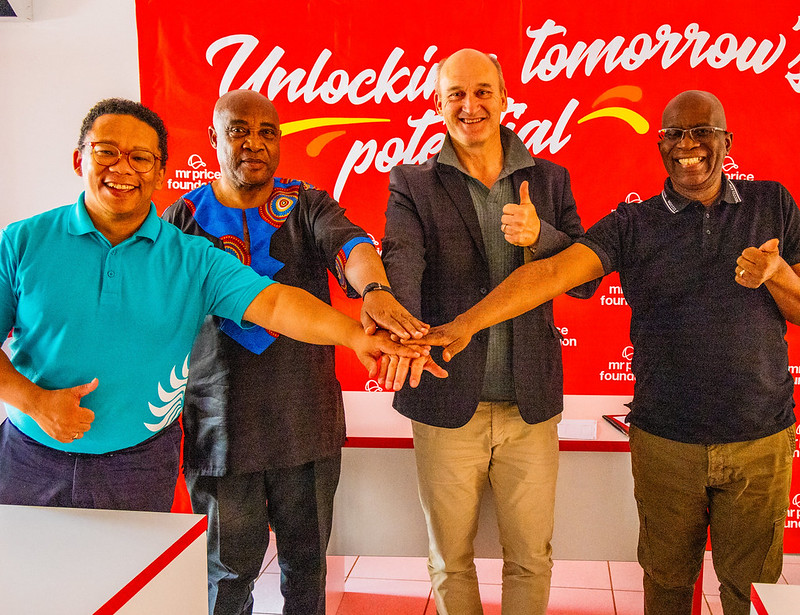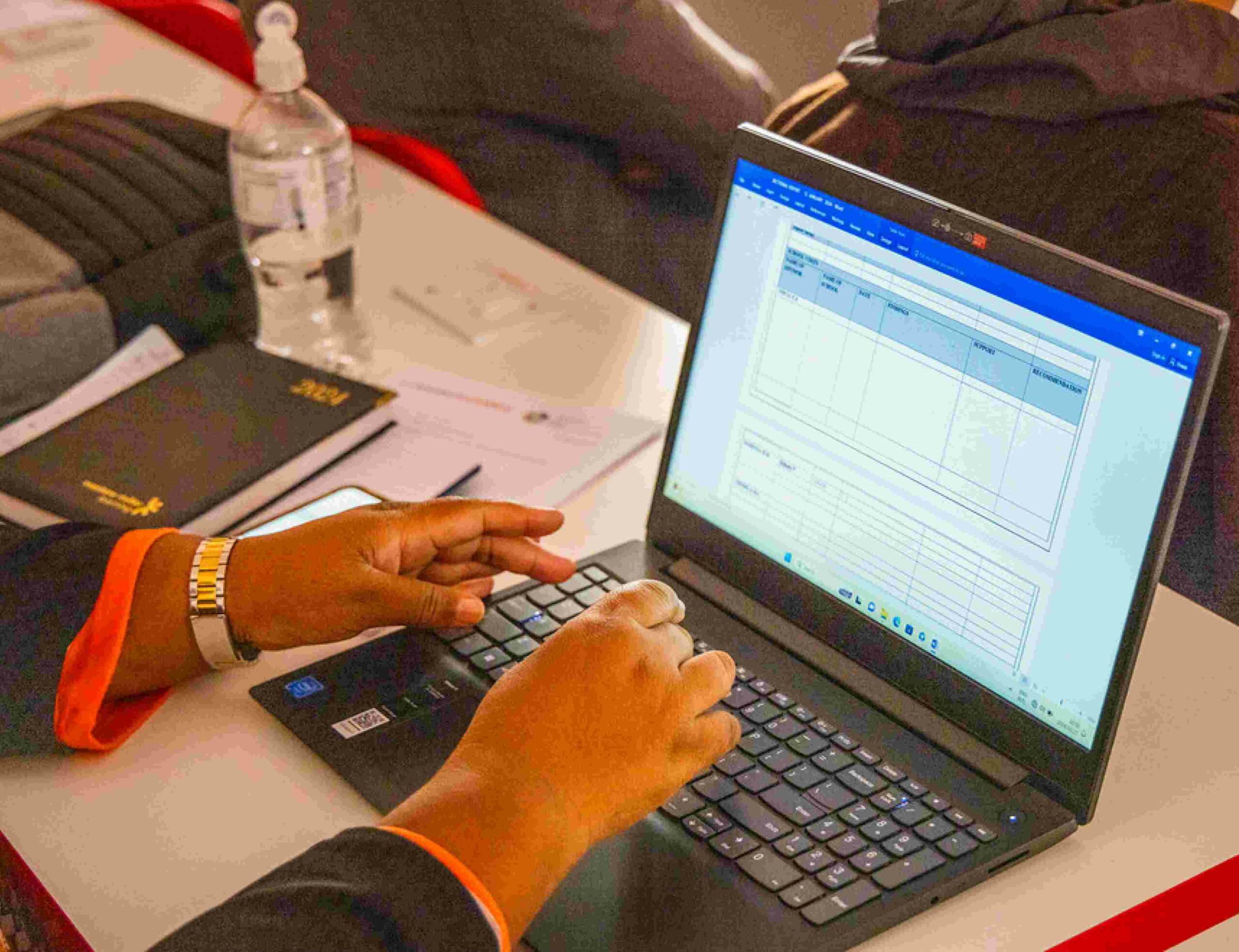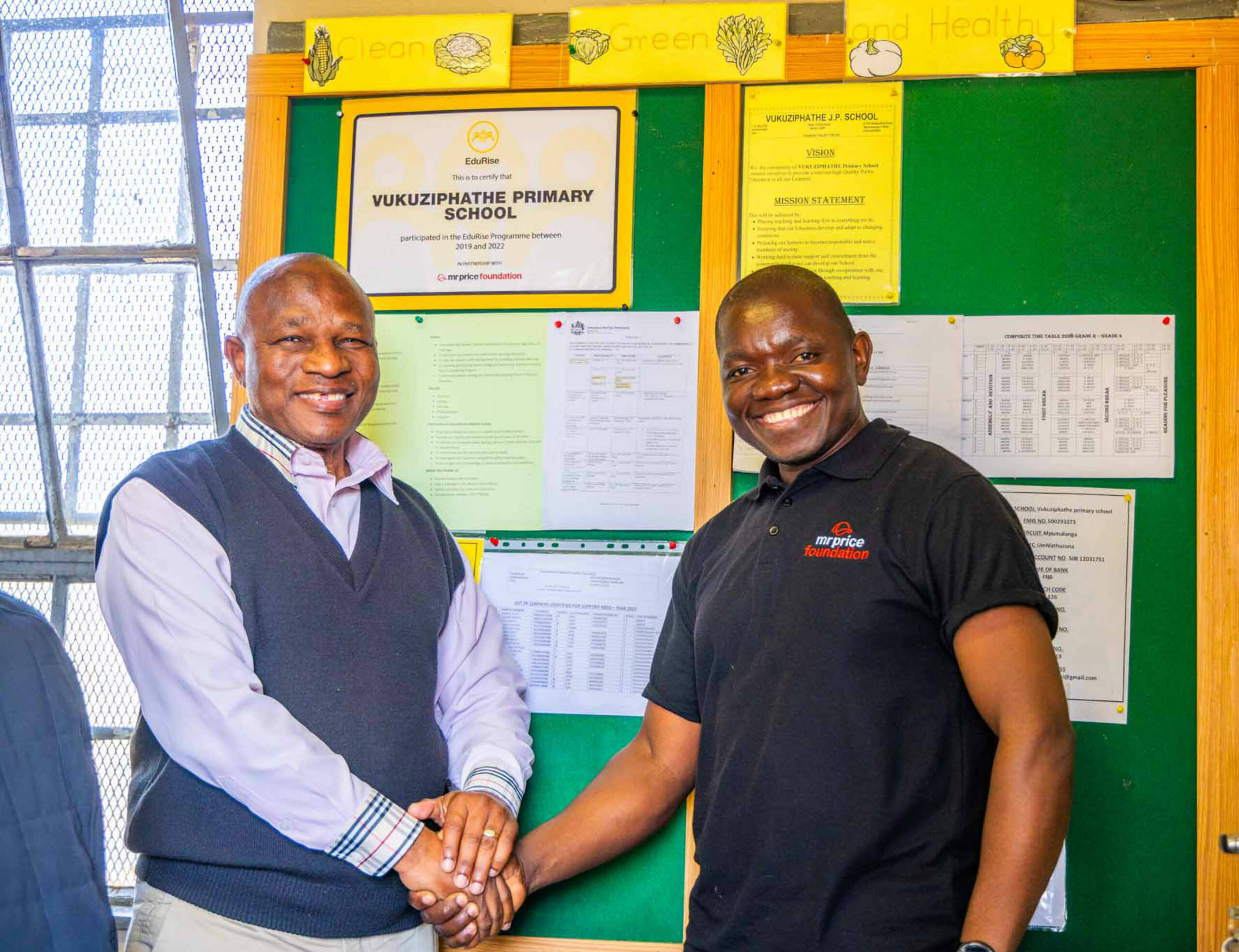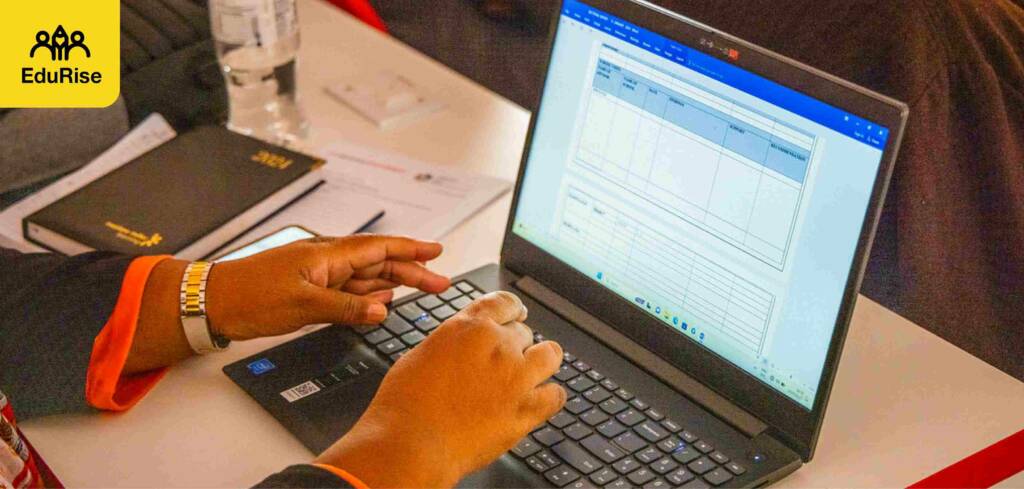
Baseline Assessments provide a clear starting point for every learner. © Pierre Tostee / Mr Price Foundation
- We thank educators supported by our EduRise programme for prioritising baseline assessments.
- Baselines help educators pitch their content at the right level.
- Keeping learning on track is essential to achieve the UN SDGs by 2030.
The end of school terms is always go-go-go for our EduRise family! This is when our EduRise primary school partners and implementing partners delve into learners’ baseline assessments.
We thank our EduRise partners for prioritising these assessments. They are performed once a term on specific content areas, with an endline assessment performed in the fourth term to round off the year.
“Baseline assessments are time consuming – but they are important. They provide a clear starting point for every learner,” said Pain Mashingaidze, EduRise Programme Manager.
After reviewing the assessments, our EduRise implementation partners communicate their findings with educators.
“This allows educators to see the levels and areas of weaknesses before they teach learners, so that they can pitch their content at the right level. The findings also inform the content for our educator workshops. It is like visiting a doctor and getting a diagnosis – so that you can act on the diagnosis,” said Pain.
Not only do assessments help ensure that work is set at the right level, it also helps paint a clearer picture of the progress of the class and learners throughout the year.
Ensuring that learning is on track from foundation phase and primary school is essential if South Africa is to achieve the UN’s Sustainable Development Goals 2030.
However, one of the key predictions of the 2030 Reading Panel is that about 69% of 10-year-old pupils in South Africa will be unable to read for meaning in 2026.
This report, chaired by former deputy president Dr Phumzile Mlambo-Ngcuka, was released in February 2024. It emphasised an urgent need for a targeted and strategic plan to increase the number of pupils who can read for meaning.
Their recommendations to improve early reading for meaning included implementing a universal standardised assessment of reading at primary school level.
The report follows the 2021 Progress in International Reading Literacy Study (Pirls), which revealed that 81% of Grade 4s in South Africa cannot read for meaning and in their home languages.
“Our children will be left behind if they don’t learn to read for meaning by the end of the early grades. Reading is a fundamental skill. It is essential in order for learners to tap into knowledge, solve problems, communicate and collaborate. That’s why our EduRise programme is focusing on literacy and numeracy,” said Pain.

